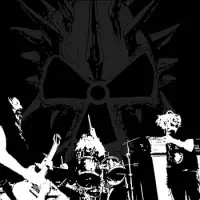Few bands can claim to have had as many lives as Corrosion of Conformity. The group was born in Raleigh, North Carolina in 1982. They started out as a punk band, and 1984's Eye for an Eye is a hardcore classic. When their first singer left after their debut, the core trio of Mike Dean (bass, vocals), Woody Weatherman (guitar) and Reed Mullin (drums) soldiered on. As a three piece they recorded 1985's Animosity. This was an important album in the growing crossover movement, where bands like C.O.C., D.R.I. and Gang Green were blurring the lines between punk, metal and thrash.
After two more records and two more departed singers, second guitarist Pepper Keenan took over as lead vocalist. The band would find its greatest success with Keenan at the helm. 1994's Deliverance found the band going in a slower, more stoner rock direction. The album went gold and spawned a couple of radio staples with "Clean My Wounds" and "Albatross." The band played for huge audiences every night while opening for Metallica on a massive world tour. The Keenan—led C.O.C. produced three more studio albums and a live recording. Eventually, Keenan's side project Down became bigger than his day job with Corrosion of Conformity. Although reports vary on whether he permanently left the band, he simply didn't have the time to devote to it. At this point, no one would have blamed the rest of C.O.C. if they decided to throw in the towel.
Instead of calling it a day, the core trio once again regrouped. Although Dean and Mullin had both left for a time, it always seems to come back to these three guys. 2012 brought us their self titled album, a thrashy return to form and their best record since Deliverance . No one had anticipated such a dramatic rebirth, or another career—defining album at that point in the band's life. Expectations are higher this time around for lX , the band's ninth (duh) studio LP.
The first two songs, "Brand New Sleep" and "Elphyn" find the band again embracing a turbo—charged Sabbath sound. The riffs are big and memorable and the lyrics are abstract. The third song, "Kill Denmark Vesey," might be the most straight—up punk rock song the band has ever done. The music is almost Ramones—like, with lyrics that are historical and linear. The fourth song, "The Nectar," is the album's emotional center. Its fast verses downshift into the slow chorus, its words leave a lot to the imagination of the listener. The fifth song, "Interlude," is a short, clean guitar piece to give our ears a break before the onslaught continues.
The second half of the record follows a similar formula. Razor sharp, sped up Sabbath—style riffs combine with slower, doomy parts. "On Your Way," "Trucker," "The Hanged Man," "Tarquinius Superbus" and "Who You Need to Blame" are all very solid. The songs on side B are as good as side A. The album ends with "The Nectar Reprised," slowly fading to silence.
This version of C.O.C. will never be a huge commercial success. As good as they are, there is just not much mainstream appeal. It sometimes feels like Mike Dean is a reluctant frontman. He doesn't have the world's strongest voice, but it works well within the context of these songs. There's just something magical that happens when these three guys get together. Corrosion of Conformity is still alive and kicking. This is another great album from an important band.
